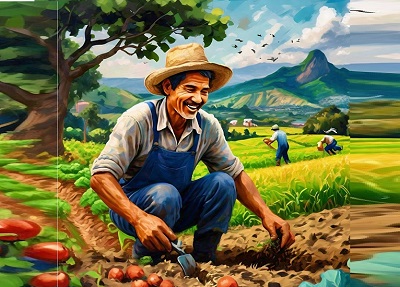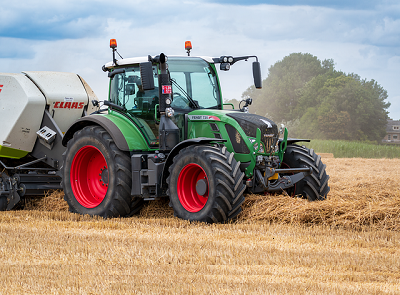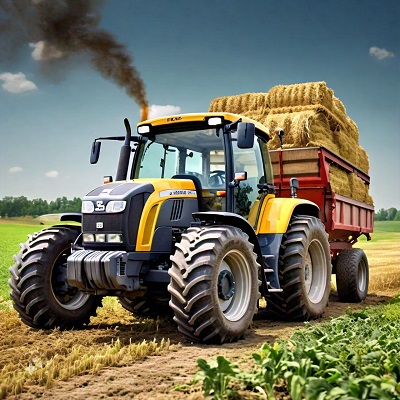Detailed discussion on the value of agriculture in maintaining both humanity and the environment
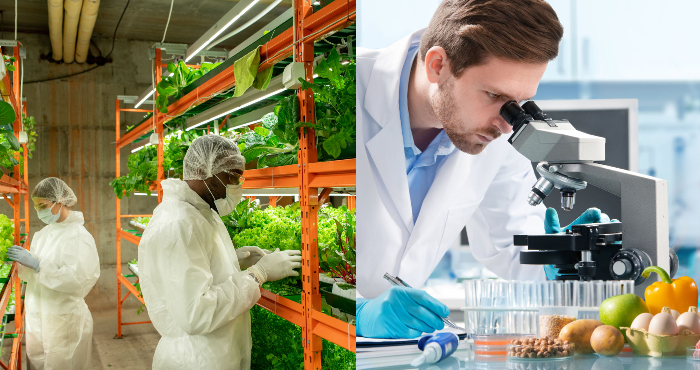
For thousands of years, the foundation of human civilisation, agriculture, has been essential to the survival and advancement of societies. Agriculture has supplied food, raw materials, and economic stability to people. All across the world from prehistoric times to the present. This article explores the many facets of agriculture’s significance, looking at how it contributes to social cohesion, economic growth, environmental sustainability, and value of agriculture in maintaining both humanity and the environment.
Food Security: The Foundation of Life
- Maintaining Sufficient Amount of Food
The main source of food in the globe is agriculture. It guarantees the supply of vital nutrients needed for human health and life. Food scarcity would become a serious problem. In the absence of a strong agricultural sector, resulting in widespread hunger and malnutrition. - Diverseness and Nutritiousness
The production of a wide variety of crops made possible by modern agriculture offers a balanced diet that consists of carbs, proteins, fats, vitamins, and minerals. This variety is essential for preserving health and avoiding illnesses brought on by dietary deficits. - Getting Ready for Climate Change
In response to shifting climatic conditions, agricultural strategies have developed to ensure that food production is resilient to extreme weather, droughts, and floods.
Economic Development: Driving Growth and Prosperity
- Creation of Employment
Particularly in emerging nations, agriculture is a significant employer. Millions of persons, including farmers, labourers, and workers, rely on it for their livelihoods. linked sectors include retail, transportation, and food processing. - Origin of Income
Since agriculture provides money for rural households, it makes a considerable economic contribution to countries. Additionally, it provides support to related industries, which multiplies the effect and promotes development and economic progress. - Export Revenues
Exports of agricultural products are a major source of foreign cash for many nations. Exporting livestock, crops, and other agricultural goods improves these nations’ economic standing internationally and aids in balancing trade deficits. - Remote Area Improvement
Among the rural infrastructures created as a result of agricultural investment are roads, schools, and healthcare facilities. This development narrows the gap between urban and rural areas and improves the quality of life for rural populations.
Environmental Sustainability: Preserving Natural Resources
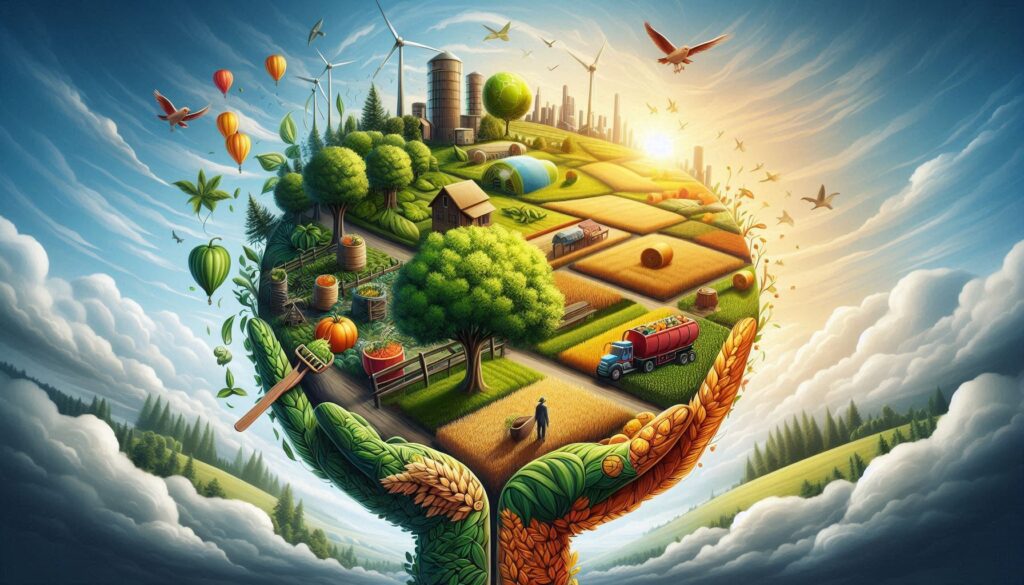
- Healthy Soils and Fertility
Crop rotation, organic agriculture, and conservation tillage are examples of sustainable agricultural techniques that support the fertility and health of the soil. Long-term agricultural productivity and the general health of ecosystems depend on healthy soils. - Water Resources Administration
An important aspect of water management is agriculture. Effective irrigation techniques and systems ensure that water resources are preserved, allowing agriculture to flourish without compromising or tainting water sources. - Preservation of Biodiversity
By preserving a variety of crop varieties and agricultural techniques that support the survival of different plant and animal species, agriculture may foster biodiversity. The resilience and stability of ecosystems depend heavily on this biodiversity. - minimise Climate Change
By using techniques like farming and soil carbon sequestration, agriculture helps to mitigate the effects of climate change. These methods improve ecosystems’ capacity to absorb carbon dioxide and lower greenhouse gas emissions.
Social Cohesion: Building Strong Communities
- Unique Cultures
Agriculture and customs and cultural heritage are closely related. Many communities maintain a sense of cultural identity and community by using agricultural methods that have been successfully passed down through the years. - Involvement with Communities
Cooperation and community involvement are fostered by agriculture. Farmers frequently collaborate, exchange knowledge, and offer assistance to one another, enhancing social ties and developing a feeling of community. - Food Self-awareness
Communities gain authority over their food sources through agriculture. Communities will be able to grow food that satisfies their cultural, nutritional, and financial demands thanks to this food sovereignty. - Learning and Developing Skills
Opportunities for learning and improvement of skills are presented by agriculture. New methods, tools, and practices that boost output and sustainability are taught to farmers. These abilities are beneficial for both individual and group growth.
Technological Advancements: Shaping the Future of Agriculture
- Accurate Farming
To improve farming techniques, precision agriculture makes use of technologies like GPS, sensors, and data analytics. With the use of this technology, farmers may minimise their environmental impact, increase production, and cut waste by making data-driven decisions. - Biotechnology
Genetic modification and plant breeding, among other bio-technologies, have totally changed agriculture. It makes it possible to grow crops that are resilient to illnesses, pests, and environmental stressors, increasing yields and lowering the requirement for chemical inputs. - Ecological Methods
Agriculture is changing as a result of cutting-edge sustainable techniques including hydroponics, aquaponics, and vertical farming. By minimising the impact on the environment and lowering the requirement for land and water, these techniques enable efficient food production in urban environments. - Integration of Renewable Energy
Combining energy from alternative sources, such as solar and wind electricity, into agricultural operations helps reduce dependency on fossil fuels. This change lowers greenhouse gas emissions while improving agricultural sustainability.
Challenges Facing Agriculture: Addressing the Future
- Changes in Climate
The agricultural sector faces noteworthy obstacles due to climate change, such as severe weather conditions, altered growth seasons, and amplified pressure from pests and diseases. Resilient agricultural systems and adaptable solutions are needed to meet these problems. - Depletion of Resources
A decline in natural resources including soil, water, and biodiversity puts agriculture’s capacity to survive in jeopardy. To ensure that these resources are available for future generations, conservation initiatives and sustainable practices are crucial. - Financial Inequality
For smallholder farmers, economic disparity in the agriculture industry may restrict their access to markets, technology, and resources. This imbalance must be addressed in order to ensure that agricultural progress can benefit all farmers. - Food Waste
The agricultural supply chain has a serious problem with food waste. Enhancing food systems’ efficiency and sustainability necessitates reducing food waste through better practices in transit, storage, and consumption.
Conclusion: Embracing the Importance of Agriculture
The civilization of humanity cannot exist without agriculture, which also supports social cohesiveness, economic growth, environmental sustainability, and food security.Its significance extends beyond just providing food for humans; it also has an impact on the state of the planet and the foundation of civilization. It is crucial to adopt sustainable practices, technology breakthroughs, and regulations that assist farmers and rural communities in order to guarantee agriculture’s continued significance. We can create a resilient and prosperous future for everyone by acknowledging and resolving the issues facing the value of agriculture in maintaining both humanity and the environment.
In conclusion, it is impossible to exaggerate the significance of agriculture. It is the cornerstone of our history, the force behind our current existence, and the secret to a prosperous and sustainable future. By utilising agriculture to its fullest extent, we can save the environment, feed the globe, and promote thriving. In final analysis, it is impossible to exaggerate the significance of agriculture. It is the cornerstone of our history, the force behind our current existence, and the secret to a prosperous and sustainable future. By utilising agriculture to its fullest extent, we can safeguard the environment, feed the globe, and create prosperous communities for future generations.






